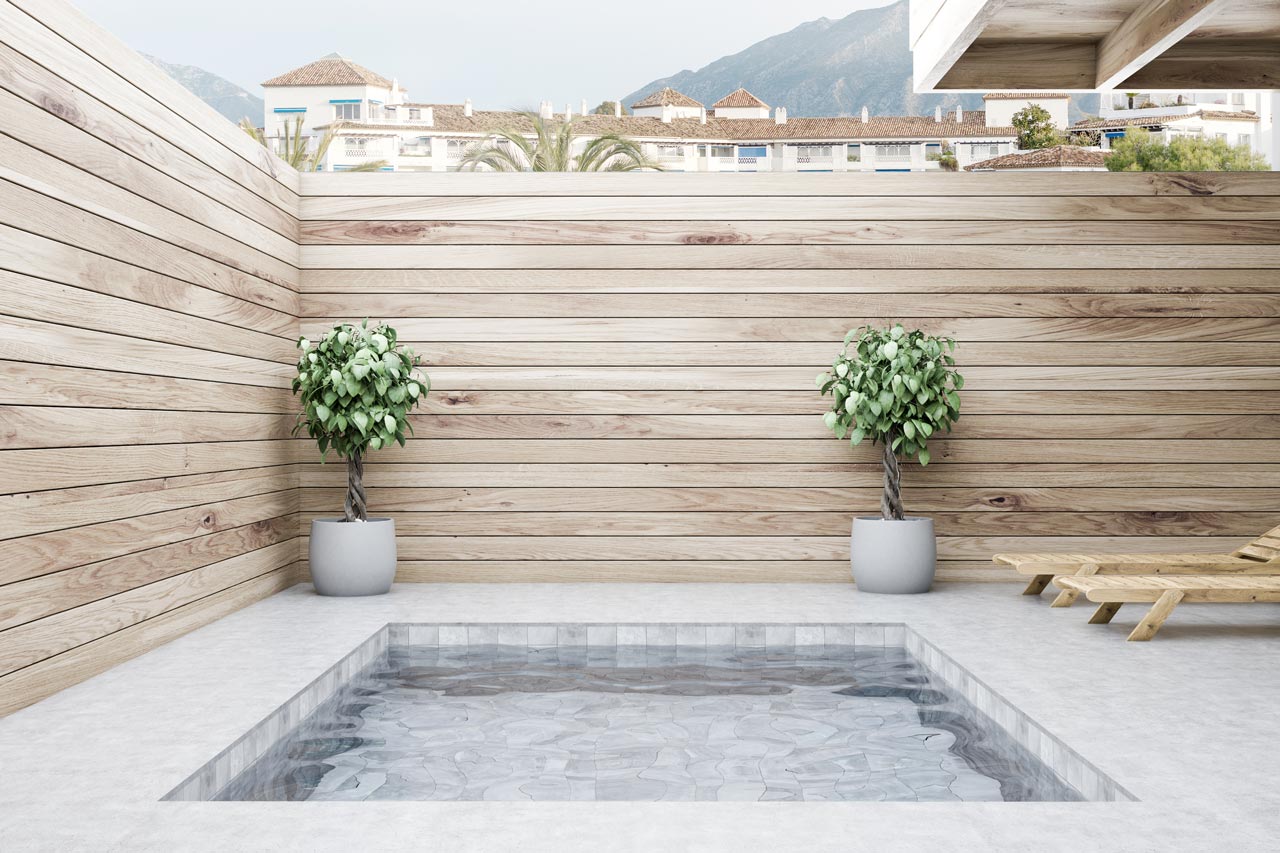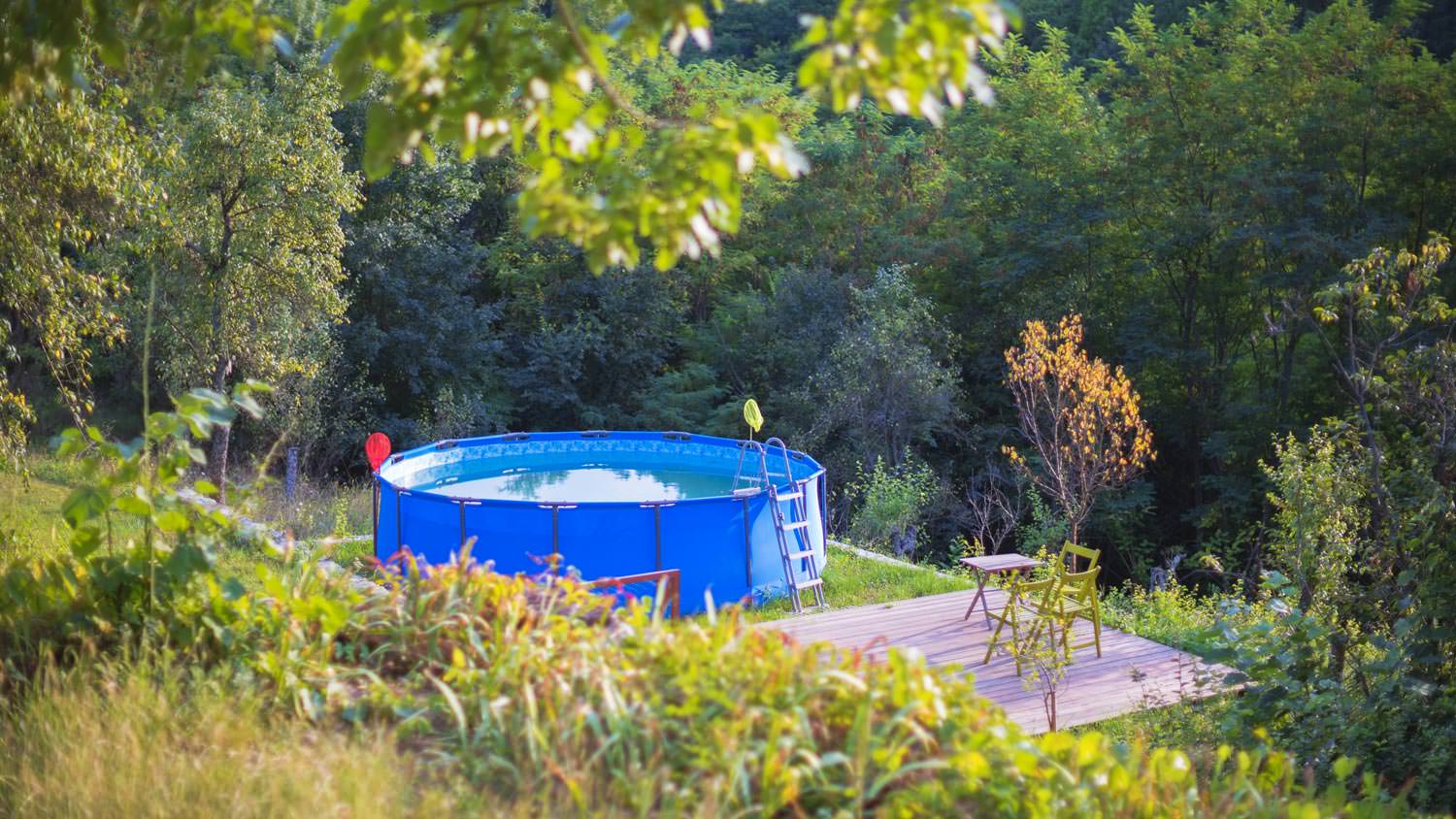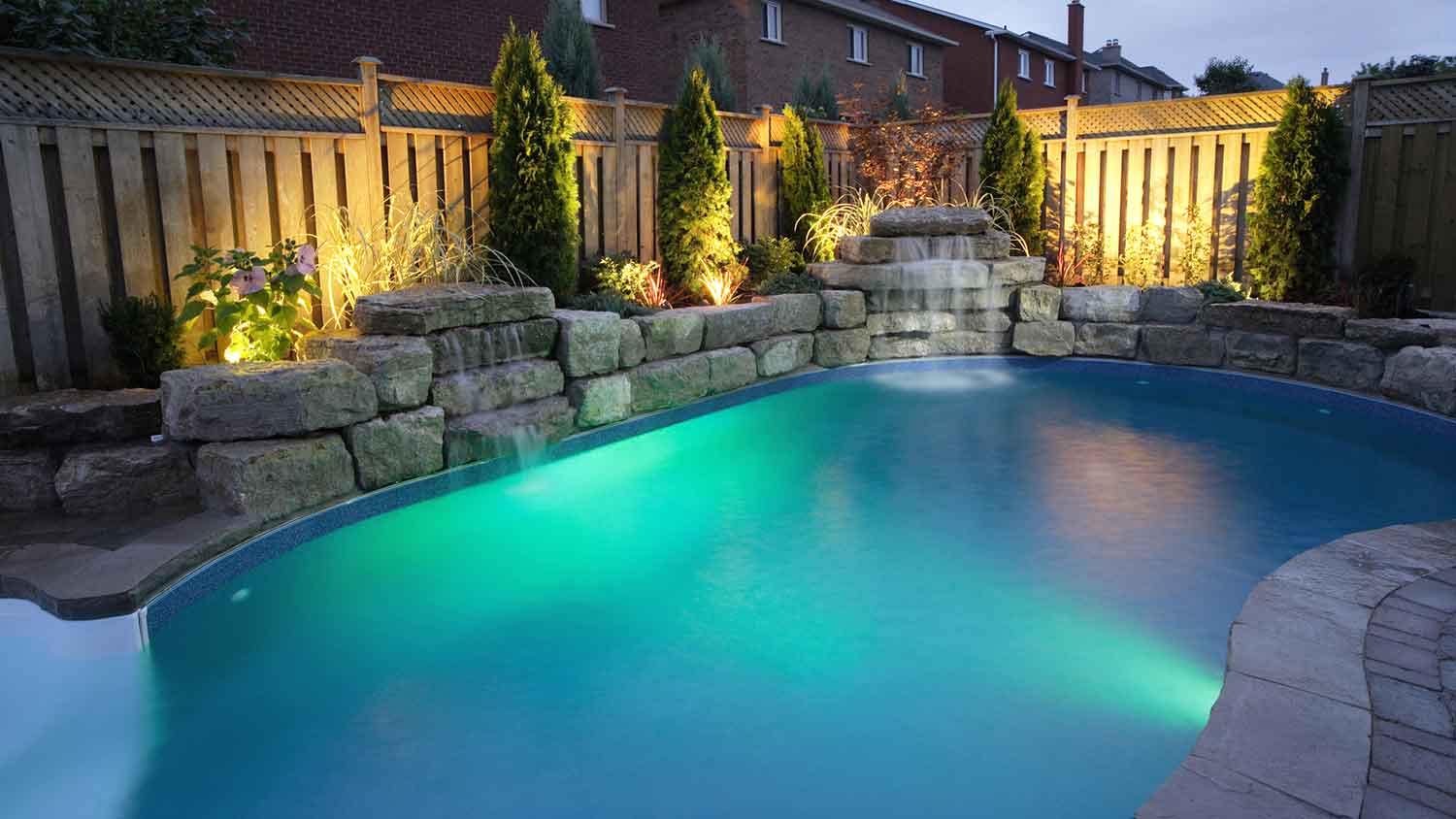
Curious about lap pool costs? Learn the average price to install a lap pool, key cost factors, and tips to get the most value from your swim-friendly upgrade.
You’ll pay $1,300 on average to replace a pool pump


A standard pool pump replacement costs an average of $1,300, with a range of $160 to $6,000.
Major cost factors include pool size and the type of pump.
Upgrading your pump can improve energy efficiency and maintain cleaner water.
Professional pool pump installation helps ensure safety, efficiency, and longevity.
This article was updated using automation technology and thoroughly reviewed for accuracy by HomeAdvisor Editor Ryan Noonan.
A new pool pump costs an average of $1,300, with most homeowners spending between $700 and $4,000. When budgeting for a pool pump replacement, consider factors like your pool type, the pump you choose, and labor costs. Hiring a pool repair professional ensures proper installation and extends the lifespan of your pool pump.
Several factors influence the cost of installing a pool pump, including the type of pool, the type of pump selected, labor costs, and additional features such as timers or water features. Here’s a breakdown of the factors that affect pool pump replacement costs.
Due to the increased complexity of installation, in-ground pool pumps cost more than above-ground pumps. You can expect to pay between $700 and $4,000 for a pool pump, with above-ground pools falling within the lower range and in-ground pools rising towards the higher end.
The type of pump you choose has a significant impact on the cost. Pump prices range from $250 to over $4,000, depending on the size of your pool and your specific needs. For instance, dual-speed pumps start at $300, while high-head pumps designed for complex setups can cost upwards of $4,000.
The brand of pool pump you choose matters. High-end models can cost up to 80% more because they utilize tougher materials, incorporate smart features, and offer more extended warranties.
Labor to swap in a new pump ranges from $100 to $400. If you’re investing in an entire pool, that price is factored into the overall project cost.
If installation requires excavating space to bury the pump, this will add an extra $100 to $200 to your costs.
Waterfalls, spas, and fountains look great, but they need extra power. Consider adding an additional low-head pump ($250–$1,600) or upgrading to a high-head submersible unit for more complex setups.
Adding a pool pump timer incurs an additional cost of $50 to $100. A timer ensures your pump operates only when needed, saving energy and eliminating the need to turn it on and off manually. If you’re also installing a new filter, expect to add $250 to $2,000 to your overall pool remodel costs.
The type of pool pump you choose will impact your cost. Here’s a look at different types of pool pumps and their average prices.
| Pump Type | Average Cost Range (Installed) |
|---|---|
| Single speed | $250–$1,000 |
| Dual speed | $300–$1,600 |
| Variable speed | $800–$2,500 |
| Low head | $250–$1,600 |
| Medium head | $400–$2,500 |
| High-head submersible | $1,250–$4,000+ |
| Solar pump | $500–$3,000 |
Single-speed pumps cost between $250 and $1,000 to install. They run at only one speed and stopped rolling off production lines in 2021 because they no longer meet Department of Energy efficiency rules.
Dual-speed pool pumps, including labor, cost from $300 to $1,600 for most residential pools. As the name suggests, they run at two fixed speeds: high and low. High speed is best suited for most filtration needs, while low speed is more effective for general circulation, resulting in reduced energy costs. Most dual-speed pumps pay for themselves in energy savings within one year.
Variable-speed pump prices span from $800 to $2,500 for home pools. This type of pump is more expensive than the average pump, but the payoff is that it’s quieter, faster, and significantly more energy-efficient, paying for itself within two years.
Low-head pool pumps cost between $250 and $1,600 on average. They’re often used strictly for water features, like a waterfall or fountain. They operate at low head pressures, not exceeding 10 feet, and require large pipes.
Medium-head pool pumps cost between $400 and $2,500 and comprise the majority of pool pumps. They’re useful in general pool applications and operate at medium pressures. They’re excellent when your pool is average-sized and does not have a water feature.
High-head or high-performance pool pumps cost between $1,250 and $4,000, with prices increasing further for more advanced models. They’re ideal for complex pool setups that include features like a pool with a water feature, such as a waterfall, spa, or an endless edge.
Solar pumps cost anywhere from $500 to $3,000. They run on solar power, meaning they can save you a significant amount of money over time, provided your pool receives enough sunlight. Due to the high initial cost of solar pumps, they’re only recommended for pools that receive at least 10 hours of direct sunlight per day.
Pump replacement costs average between $700 and $4,000, although in some cases, costs can range from as low as $65 to as high as $6,000. Here are some replacement costs to consider:
Large or high-head pumps for large commercial installations can cost upwards of $4,000, or, in rare high-end scenarios, up to $6,000.
If you opt for the same make and model as your current pool pump, you’ll probably pay $280 to $500 less than if you choose to upgrade.
The added costs of upgrading often come from minor modifications needed to the housing or plumbing system to make it work.
Replacing your pool pump and filter at the same time may save you a little. New pool filters cost between $250 and $2,000, excluding labor.
Including labor and materials, replacing your pool pump motor costs between $200 and $800 for most motors, though in some cases it can reach up to $2,000. The average price of replacing a pool pump motor is $500.
Pool pumps last an average of eight to 15 years. If your motor is no longer functioning and your pump is more than 10 years old, it’s likely more cost-effective to replace the pump rather than repair the motor and then have to replace the entire unit shortly after.
DIY installation can save $100 to $400 on the bill, but replacing a pump involves working with live wiring and plumbing. Unless you have the necessary expertise, it's best to hire a pool repair professional to ensure the job is done safely and correctly. Improper installation can lead to equipment damage, safety hazards, and costly repairs down the line.
Hiring a professional ensures that your pool pump is installed correctly, extending its lifespan and ensuring compliance with local regulations. Pros can also help you select the ideal pump for your pool's size and setup. While it might cost more upfront, professional installation can save you time, stress, and money in the long run.
Line up a licensed pool-pump repair pro near you to handle the wiring, protect your equipment, and give you peace of mind.
If your pool pump is showing signs of trouble, you'll need to decide whether to repair or replace it. For pumps under eight years old with minor issues, such as a worn seal or damaged impeller, pool repairs cost between $150 and $500 and make financial sense. However, once repair costs exceed 50% of a new unit's price or if your pump is nearing the end of its lifespan, replacement is often the smarter investment.
Newer energy-efficient models can save up to 70% on operating costs compared to older single-speed pumps, often paying for themselves within two to three years through reduced utility bills. Consider both the immediate expense and long-term savings when making your decision.
No place is more important than your home, which is why HomeAdvisor connects homeowners with local pros to transform their houses into homes they love. To help homeowners prepare for their next project, HomeAdvisor provides readers with accurate cost data and follows strict editorial guidelines. After a project is complete, we survey real customers about the costs to develop the pricing data you see, so you can make the best decisions for you and your home. We pair this data with research from reputable sources, including the U.S. Bureau of Labor Statistics, academic journals, market studies, and interviews with industry experts—all to ensure our prices reflect real-world projects.
From average costs to expert advice, get all the answers you need to get your job done.

Curious about lap pool costs? Learn the average price to install a lap pool, key cost factors, and tips to get the most value from your swim-friendly upgrade.

Explore how much it costs to install a plunge pool based on factors like size, materials, tiling, location, labor, and permits.

Pool resurfacing costs depend on factors such as pool size, material, refilling, whether your pool is above or below ground, labor, and more.

It’s time to kick back and cool down for the summer. If you’re ready to make a splash, check out how much an in-ground pool costs with this guide.

Who installs above ground pools? Learn when to hire a pool installer vs. landscaper, what to expect, and the typical cost range.

Not sure who to call to fix a pool light? Learn why a pool repair service is best, what electricians can do, and what replacement costs.